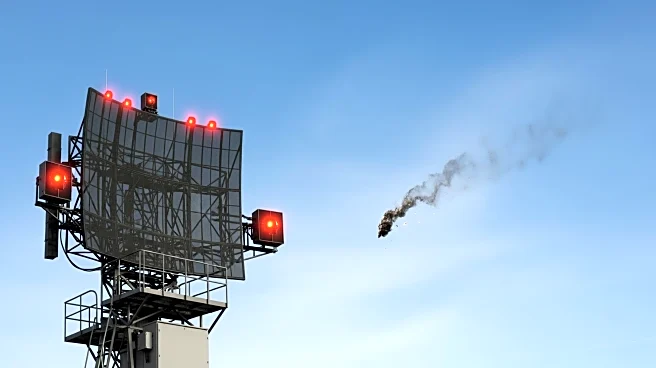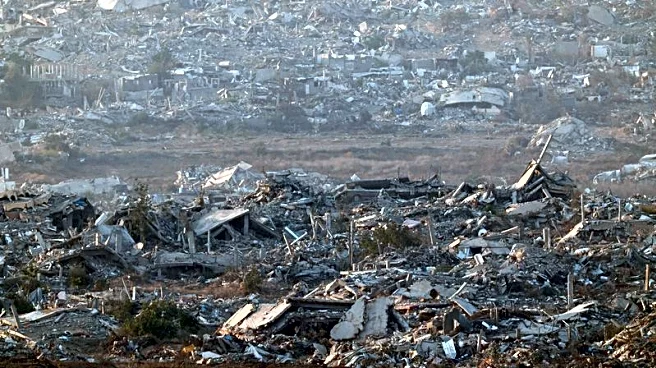What's Happening?
On September 9, 2025, Russian drones entered Polish airspace, prompting a Quick Reaction Alert from NATO forces. The Polish Air Force and other NATO militaries scrambled aircraft, with several drones shot
down by Dutch F-35s. Poland's Prime Minister Donald Tusk described the drones as a direct threat and invoked Article 4 of the NATO treaty. The incursion led to the temporary closure of airspace over major Polish airports. The incident marks the first time NATO has engaged and downed Russian assets in its airspace since the start of the Ukraine conflict.
Why It's Important?
The drone incursion into Polish airspace represents a significant escalation in the Ukraine conflict, challenging NATO's unity and defense capabilities. Poland's invocation of NATO Article 4 underscores the seriousness of the situation, as it allows for consultations among member states when a threat is perceived. This incident tests NATO's readiness and response strategies, highlighting the need for robust air defense systems and international cooperation. The event could influence NATO's strategic posture in Eastern Europe, prompting increased military spending and heightened security measures among member states.
What's Next?
NATO is likely to enhance its air defense capabilities and increase surveillance along its eastern borders. Poland's invocation of Article 4 may lead to further diplomatic and military consultations within the alliance. The incident could prompt NATO to reassess its defense strategies and readiness in response to potential future provocations. Additionally, the situation may influence ongoing diplomatic efforts to resolve the Ukraine conflict, with potential implications for international relations and security policies.
Beyond the Headlines
The drone incursion raises questions about the effectiveness of NATO's deterrence strategies and the potential for further escalation in Eastern Europe. It highlights the complexities of modern warfare, where unmanned aerial vehicles can be used to test and provoke military responses. The incident may also impact public perception of NATO's ability to protect member states, influencing political discourse and defense policies. Furthermore, it underscores the importance of technological advancements in air defense systems and the need for international collaboration to address emerging security threats.











